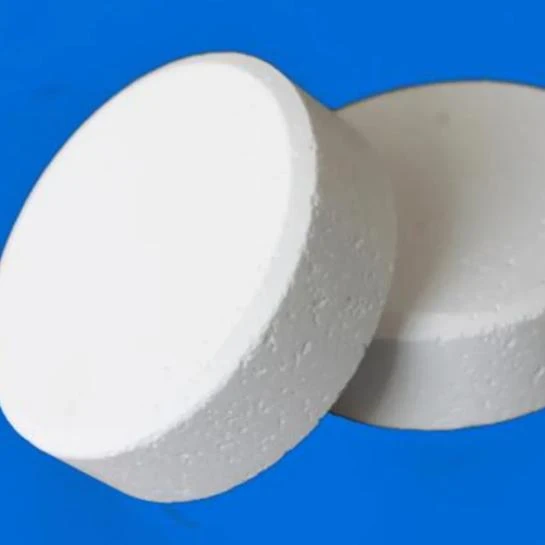
The Benefits of Using Sulfur Fertilizers for Improved Crop Growth and Soil Health
Understanding Sulphur Fertilizers Importance, Types, and Applications
Sulphur is an essential macronutrient that plays a crucial role in the growth and development of plants. While nitrogen, phosphorus, and potassium are often highlighted as the primary nutrients necessary for plant health, sulphur is equally important, particularly in certain soil types and crop production systems. This article delves into the importance of sulphur fertilizers, the various types available, and their applications in agriculture.
The Importance of Sulphur in Agriculture
Sulphur is a vital component of amino acids, proteins, and enzymes, which are essential for plant metabolism. It is involved in the synthesis of chlorophyll and aids in the plant’s ability to utilize nitrogen. Sulphur deficiency can lead to stunted growth, chlorosis (yellowing of leaves), and ultimately, lower yields. Many soils, especially those that are sandy or have low organic matter, may not contain sufficient sulphur naturally. As such, the application of sulphur fertilizers becomes indispensable in achieving optimum crop production.
Types of Sulphur Fertilizers
Sulphur fertilizers come in various forms, broadly classified into two categories elemental sulphur and sulphur-containing compounds
.1. Elemental Sulphur This is a naturally occurring form of sulphur and is often used in its raw form. Elemental sulphur must be oxidized by soil microorganisms to be available to plants as sulphate. This process can take time, which makes elemental sulphur better suited for long-term applications rather than immediate plant needs.
2. Sulfate Fertilizers These include products like ammonium sulfate, potassium sulfate, and magnesium sulfate. Sulfate forms of sulphur are immediately available for plant uptake, making them highly effective for addressing sulphur deficiencies quickly. These fertilizers not only supply sulphur but also provide other essential nutrients like nitrogen, potassium, and magnesium.
3. Organic Sulphur Fertilizers Organic matter, such as compost or manure, contains sulphur in a form that is gradually released as microbes break it down. While they may supply sulphur, the release rate is slower, making them suitable for building long-term soil health.
sulphur fertilizer

4. Slow-Release Sulphur Fertilizers These fertilizers are formulated to release sulphur gradually over time, ensuring a longer period of availability for plants. This can help in synchronizing sulphur availability with crop uptake.
Applications in Agriculture
Incorporating sulphur fertilizers into agricultural practices can significantly enhance soil fertility and crop yields. Here are some key applications
1. Soil Testing Before applying sulphur fertilizers, farmers should conduct soil tests to determine existing sulphur levels and specific crop needs. This helps in applying the correct amount of fertilizers, preventing overuse, which can be detrimental to both the plants and the environment.
2. Crops Needing High Sulphur Levels Certain crops require higher levels of sulphur, including canola, mustard, legumes, and some vegetables. Targeted applications for these crops can lead to improvements in yield and quality.
3. Problematic Soils Soils that are low in organic matter or those that have high pH levels may benefit from sulphur applications. The acidification effect of sulphur can help in improving nutrient availability in such soils.
4. Environmental Considerations While sulphur fertilizers are essential, their use must be managed responsibly to minimize environmental impacts such as leaching into water bodies, which can lead to acidification and affect aquatic life. Implementing best management practices, including integrating with other nutrient management strategies, can help mitigate these risks.
Conclusion
In conclusion, sulphur fertilizers play a vital role in modern agriculture. Understanding the various types and appropriate applications can enhance crop productivity and sustainability. As global food demand continues to rise, the strategic use of sulphur can help farmers meet production targets while maintaining the health of the soil and environment. Sustainable management of sulphur fertilizers will be essential in the pursuit of balanced agricultural systems, ensuring that both crops and ecosystems thrive.
-
Pure Sodium Dichloroisocyanurate Dihydrate | Powerful DisinfectantNewsAug.29,2025
-
Industrial Chemicals: Quality & Purity for Every IndustryNewsAug.28,2025
-
Nitrile Rubber Honoring Strict Production StandardsNewsAug.22,2025
-
Aspartame Ingredients Honoring Food Safety ValuesNewsAug.22,2025
-
Fertilizer for Balanced Plant NutritionNewsAug.22,2025
-
Cyanide Gold Processing with High Purity AdditivesNewsAug.22,2025
-
Formic Acid in Textile Dyeing ApplicationsNewsAug.22,2025
Hebei Tenger Chemical Technology Co., Ltd. focuses on the chemical industry and is committed to the export service of chemical raw materials.
-

view more DiethanolisopropanolamineIn the ever-growing field of chemical solutions, diethanolisopropanolamine (DEIPA) stands out as a versatile and important compound. Due to its unique chemical structure and properties, DEIPA is of interest to various industries including construction, personal care, and agriculture. -

view more TriisopropanolamineTriisopropanolamine (TIPA) alkanol amine substance, is a kind of alcohol amine compound with amino and alcohol hydroxyl, and because of its molecules contains both amino and hydroxyl. -

view more Tetramethyl Thiuram DisulfideTetramethyl thiuram disulfide, also known as TMTD, is a white to light-yellow powder with a distinct sulfur-like odor. It is soluble in organic solvents such as benzene, acetone, and ethyl acetate, making it highly versatile for use in different formulations. TMTD is known for its excellent vulcanization acceleration properties, which makes it a key ingredient in the production of rubber products. Additionally, it acts as an effective fungicide and bactericide, making it valuable in agricultural applications. Its high purity and stability ensure consistent performance, making it a preferred choice for manufacturers across various industries.





